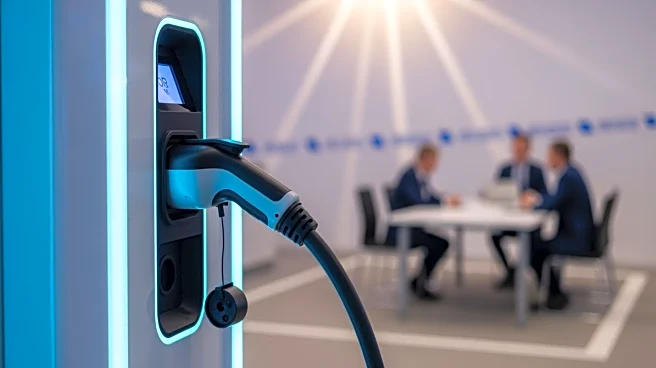What's Happening?
Consumer Reports, a respected nonprofit organization known for its product reviews, has released its 2024 list of the least reliable cars, highlighting the Ford F-150 Hybrid as the worst performer with a reliability score of 7 out of 100. The F-150 Lightning
also featured on the list with a score of 28. Despite the Ford F-Series' historical popularity as the best-selling truck in the U.S. since 1977, the newer hybrid and electric models have faced significant reliability issues. Owners reported frequent problems with the electric drive system, battery and charging components, car electronics, and transmission, which are critical for safety and drivability.
Why It's Important?
The findings from Consumer Reports could have substantial implications for Ford's reputation and sales, particularly as the automotive industry shifts towards electric and hybrid vehicles. The reliability issues with the F-150 Hybrid and Lightning may deter consumers from purchasing these models, potentially affecting Ford's market share in the competitive truck segment. Additionally, these reliability concerns could influence consumer perceptions of electric and hybrid vehicles, impacting broader adoption rates. As Ford has been a leader in the truck market, any decline in consumer trust could have ripple effects across the industry.
What's Next?
Ford may need to address these reliability issues to restore consumer confidence and maintain its position in the market. This could involve improving the engineering and integration of electric motor systems and hybrid solutions in the F-Series. Consumers might consider alternative vehicles such as the Honda Ridgeline or Chevrolet Silverado 1500, which have received better reliability ratings. Ford's response to these findings and its ability to enhance the reliability of its hybrid and electric models will be crucial in determining its future success in the evolving automotive landscape.
Beyond the Headlines
The reliability issues highlighted by Consumer Reports may prompt broader discussions about the challenges of transitioning to electric and hybrid vehicles. As manufacturers strive to meet environmental goals and consumer demand for sustainable options, ensuring reliability and performance will be key to gaining consumer trust. This situation underscores the importance of rigorous testing and feedback mechanisms in the development of new automotive technologies.















